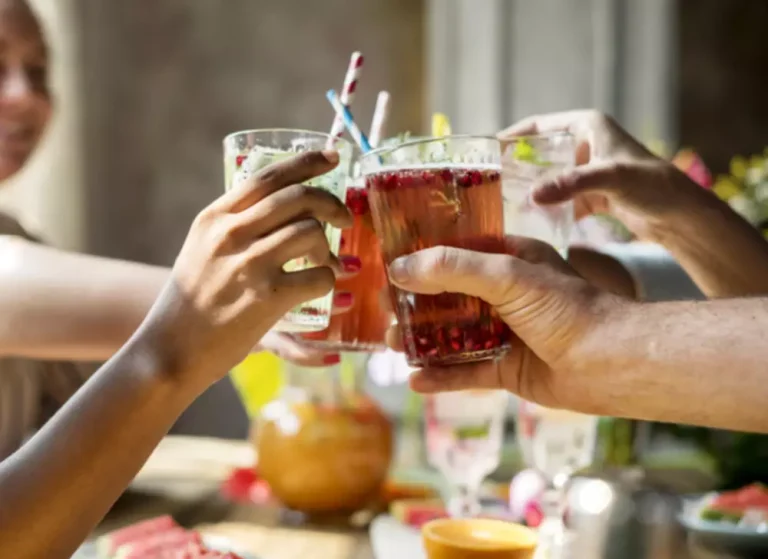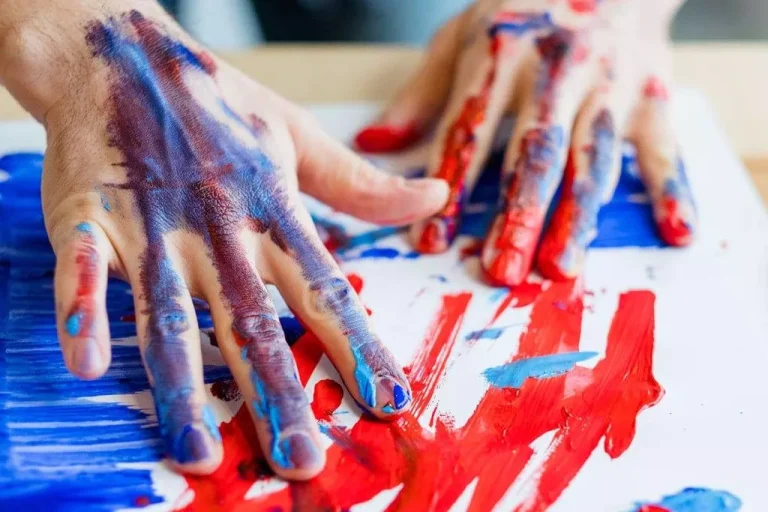
There are over the counter supplements that can help process acetaldehyde faster to avoid these side effects however. If you turn red when drinking alcohol while others stay cool, you may have this intolerance. Keep reading for our favourite tips on how to manage and prevent alcohol flushing. Similar to hangover symptoms, hot flashes and sweating occur because alcohol withdrawal triggers our body’s fight-or-flight response. Typically, alcohol depresses our central nervous system, making our brain highly sensitive to glutamate — a neurotransmitter that excites our brain. However, without alcohol in our system, our brain becomes easily overexcited, leading to increased blood pressure and heat.
Hot Flash Trigger No. 1: Red Wine
One 2013 study showed that people who get flushed after drinking may have a higher chance of developing high blood pressure. People who flush when they drink might have a faulty version of the aldehyde dehydrogenase 2 (ALDH2) gene. ALDH2 is an enzyme in your body that helps break down a substance in alcohol called acetaldehyde.
Alcohol intolerance
Cool the person quickly with cold water on the skin or by soaking clothes in cool water. You can also use a fan or other clothing to circulate air around the person to help with cooling. In some people, the initial reaction may feel like an increase in energy. But as you continue to drink, you become drowsy and have less control over your actions. Because denial is common, you may feel like you don't have a problem with drinking. You might not recognize how much you drink or how many problems in your life are related to alcohol use.
But why does this reaction happen to some of us, and not all?
Whether or not a person’s face goes red after drinking seems to link to their genetic makeup. After having a drink, the body begins to break down the ethanol into other substances, or metabolites, to make it easier to flush out of the body. One of these metabolites, acetaldehyde, is very toxic to the body. All alcoholic drinks — including beer, wine, and liquors — contain a substance called ethanol. The Dietary Guidelines for Americans defines “moderate” drinking as up to one drink a day for women and up to two drinks a day for men. If you struggle with binge drinking or alcohol abuse and want to quit, you aren’t alone.
- This reaction is common in certain populations, particularly those with Asian ancestry.
- The conversion of alcohol into metabolites generates heat, which contributes to an overall sensation of warmth.
- For people with diabetes, adequately managing their condition may help prevent unwanted symptoms, such as sweating during meals.
If you notice someone with any of the symptoms of heat exhaustion, have them sit or lie down in a shady spot. You can also give them cold drinks and apply cool, wet cloths on their skin. Genetic, psychological, social and environmental factors can impact how drinking alcohol affects your body and behavior.


You may sweat due to the heat if you may be drinking in an outdoor environment or under the sun, of course! Besides this, if you’re drinking while seated in a crowded, poorly ventilated place, you might also feel overheated. The hypothalamus (a region of the brain) is responsible for controlling the nervous system and body temperature. Alcohol impacts the brain and changes body temperature, and one may sweat due to this. We publish material that is researched, cited, edited and reviewed by licensed medical professionals.

Such home remedies may include staying hydrated and keeping the bedroom at a comfortable temperature. If you’re having trouble narrowing the cause, try keeping track of the episodes. List the details about the outdoor and room temperature at the time that you had a hot flash, your diet and activity levels, and any medications that you used. In time, you and your healthcare provider may be able to pinpoint the problem. A procedure called stellate ganglion block may be used to treat moderate to severe hot flashes by injecting an anesthetic into a nerve cluster in your neck.
What Are the First Signs of Liver Damage From Alcohol?
Listen to relatives, friends or co-workers when they ask you to examine your drinking habits or to seek help. Consider talking with someone who has had a problem with drinking but has stopped. Neuroendocrine tumors and pheochromocytomas are rare cancers, says Dr. Horwitz. When it comes to why you may be feeling hot, they’re much less common than other potential causes. If you suspect an issue with your blood sugar, be on the lookout for early signs of diabetes and speak with your healthcare provider.
It can also decrease the production of the hormone vasopressin, which regulates our body's fluid balance, leading to dehydration and increased thirst. While this process makes our skin feel warmer, the widening of blood vessels is actually our body’s way of cooling itself down after drinking alcohol. Because of this, our skin might feel warm because our body is simply trying to push heat out. Certain foods and drinks or eating a large meal can also bring hot flashes. For instance, hot flashes after eating spicy food are not unusual.
- Alcohol also causes peripheral vasodilation, a process where blood vessels widen, which can lead to the dilation of facial capillaries.
- While cirrhosis scars from excessive drinking are irreversible, quitting alcohol and leading a healthier lifestyle can help your liver heal from alcohol-related liver disease.
- Other physical symptoms such as a rapid heart rate, dizziness, and sometimes nausea can also occur.
- Feeling nauseated after eating a high-fat meal, like a cheeseburger and french fries, is not uncommon.
- As a result, their body temperature rises to uncomfortable levels.
- Alcohol makes you feel hot because it speeds up your heart rate and widens the blood vessels, called vasodilation, allowing more blood to flow, and causing the skin to feel warm and flushed.
Alcohol may cause hot flashes while you drink and after you’ve stopped drinking.
They often occur during the acute phase of withdrawal, which typically begins within hours to days after a person’s last drink. Drinking alcohol also causes blood vessels in your skin to dilate (widen). This results in increased blood flow to the skin, which can also why do i get hot when i drink give a sensation of warmth. Alcohol intolerance and alcohol withdrawal can also lead to symptoms such as night sweats and facial redness. Taking one glass of alcohol after another may cool you down mentally, but physically, you may feel the heat, quite literally!